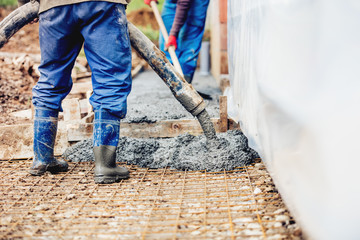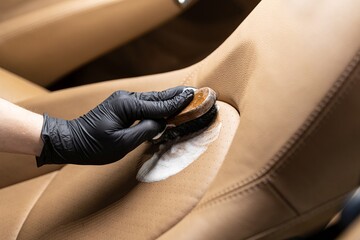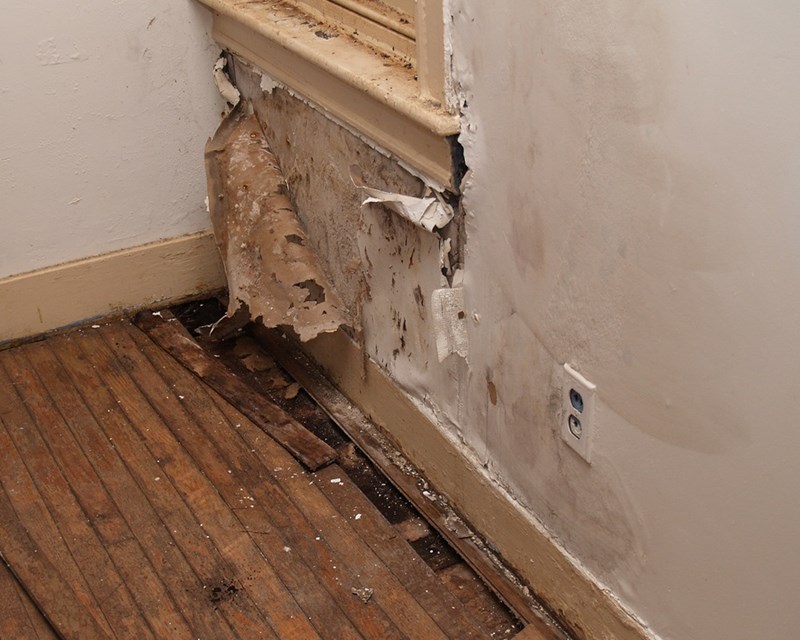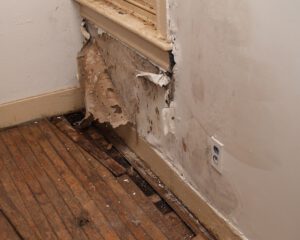Concrete experts are highly-trained professionals who can help you with concrete construction and repair projects. Their work ensures that your project complies with building codes and meets quality standards. They also have a commitment to finishing their jobs on time.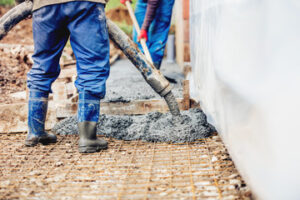
Concrete contractors are a vital component of construction projects. They have the expertise to collaborate with architects and engineers to bring projects from concept to reality. They also help you save money by ensuring that your job is completed on schedule and within budget. Visit https://www.goldenconcreteexperts.com/ to learn more.
Concrete is a vital component in construction projects, and the quality of work can greatly impact the overall project outcome. That’s why it’s important to hire an experienced concrete contractor for any project. A professional will have a strong understanding of the intricacies of concrete construction and will be able to complete the job on time and within budget. They will also be able to recommend cost-effective strategies that will not compromise the integrity of the concrete structure.
Expert contractors have extensive industry experience and are skilled in all aspects of concrete construction, from pouring to finishing and curing. They can also collaborate with architects and engineers to develop concrete construction plans that meet the specifications of the project. They can also provide consultation on site preparation and testing, as well as offer advice on concrete material selection and installation.
Additionally, a concrete expert can help assess the structural integrity of a concrete structure and determine its compliance with industry standards and building codes. These professionals can also provide insight into issues such as concrete cracking, deterioration, and other construction defects. They can also assist with litigation involving concrete-related cases, such as product liability lawsuits against manufacturers and construction companies.
When looking for a concrete contractor, consider their education and training. Look for a certification in concrete, and ask about their past projects. A reputable contractor will be able to provide you with a list of previous clients that you can contact. It’s also important to choose a contractor that is licensed and insured, as this will protect you from any potential issues. A bonded contractor will be able to fulfill contractual obligations and offers recourse in the event of non-compliance.
Experience
In commercial concrete projects, experienced contractors bring a wealth of knowledge and problem-solving skills. They also understand building permits and can help you avoid unnecessary delays. Furthermore, their experience allows them to address unexpected challenges quickly and efficiently, minimizing costs and ensuring the project stays on schedule.
The right contractor should have a portfolio of previous work that aligns with the needs of your project. Ask for references and testimonials, and ensure they have adequate insurance coverage, including liability and worker’s compensation. In addition, check whether they hold any specialty certifications related to concrete work, such as staining and stamping techniques.
Concrete contractors use a variety of specialized tools to produce precise and clean finishes. Choosing a contractor with a large tool collection and a clear understanding of their use will save you money in the long run, as they will be able to finish your job faster.
Moreover, a good contractor will have the proper equipment to handle heavy loads and minimize waste. They will also be able to adjust the mix for different projects and weather conditions. This will ensure the integrity of your concrete structure, and a smooth, professional finish.
A contractor with extensive industry experience will know how to control shrinkage and cracking, as well as how to prevent concrete damage. They will be able to use control joints, advanced curing techniques, and other methods to extend the life of your concrete structures. They will also know when to use reinforcement, such as rebar and wire mesh, for load-bearing surfaces like foundations and driveways. The wrong type of reinforcement will cause the concrete to shift or crack early, resulting in costly repairs.
Safety
Working with concrete is a labor-intensive job, but it’s important to keep safety protocols in mind. This prevents accidents that could lead to serious injury, especially if you are working with heavy equipment like a concrete pump. The right precautions can also ensure that your project goes smoothly and you get the results you need.
Commercial concrete projects can be enormous, requiring extensive preparation and installation. These large undertakings can involve building office buildings, malls, shopping centers, manufacturing plants and multifamily apartments. Regardless of the scope of your construction project, it is essential to use a contractor that understands the importance of safety measures and follows these protocols.
Getting hurt while working with concrete can happen at nearly any stage of the process. For example, the concrete dust that clings to your skin can cause burns. This is why it’s important to wear gloves and safety goggles while handling the material. It’s also important to keep your clothing clean to avoid being exposed to concrete chemicals.
Additionally, you should always wear a hard hat when working with concrete to reduce head injuries. The dust and other debris from a concrete mixing or pouring operation can be airborne, which can lead to musculoskeletal injuries like back strains. Inhaling these particles can also irritate the lungs and cause respiratory problems.
Besides wearing protective equipment, you should also inspect all machinery on your work site regularly to detect any defects that could put you in harm’s way. A broken shovel handle or a loose wheel on a wheelbarrow can result in an accident if you try to operate it. Similarly, a machine with a malfunctioning conveyor belt or a blocked chute can cause severe injuries.
Time
Concrete is a fundamental construction material, used in everything from foundations and structural elements to decorative finishes. Its ubiquity and importance make it a common focal point in construction disputes, with the expertise of concrete expert witnesses critical to resolving such issues effectively. Their specialised knowledge and rigorous methodologies help ensure quality, performance, and standards compliance in concrete construction.
Concrete contractors use a variety of tools to inspect and repair concrete structures, including visual inspections and non-destructive testing techniques. They can also perform core sampling and laboratory analysis to assess concrete samples for properties such as strength and chemical composition. Additionally, they can conduct a comprehensive review of project documentation to identify discrepancies and deviations.
Choosing the right concrete contractor for your project can be a difficult process, especially with so many options available. It is important to find a contractor that has a good reputation in the industry and can provide you with references from previous clients. This can give you a better idea of the quality of work that they are capable of.
It is also important to consider the amount of time that it will take a contractor to complete their job. This will affect your budget, as well as how much you can expect to spend on materials. Having a clear understanding of the time frame that your concrete contractor will require is crucial to avoid any surprises.
Founded in 1999 by Jim Peterson, the Concrete Network provides accurate and useful concrete information in an easy-to-use format for consumers, builders, designers, and concrete contractors and their crews. Its services include Find-A-Contractor, which connects buyers with local contractors, and a Find-A-Product database that allows users to search for products and contractors nationwide. In addition, the website offers a range of resources for contractors and their crews to improve their skills. These include workshops, schools put on by product manufacturers, and independent training programs.
Cost
Concrete is a crucial building material that has a long-term impact on your home’s functionality and appearance. Hiring a professional concrete contractor is essential for keeping costs low and ensuring that your home improvement project is completed on time. A local concrete contractor will be able to work quickly and efficiently in our area’s unique climate, minimizing the risk of delays or setbacks. They can also advise you on the best type of concrete for your particular project.
The cost of concrete can fluctuate depending on a number of factors, including raw materials and transportation costs. A shortage of these supplies can drive prices up, and contractors may be forced to pass these increases on to customers. However, by learning how to price concrete jobs, contractors can avoid these fluctuations and improve their profit margins.
When comparing quotes from different concrete professionals, it is important to understand how pricing is determined. The price per cubic yard is an important metric, but it’s also helpful to consider surface preparation and reinforcement costs, as these can significantly impact the overall project cost. Additionally, it’s helpful to compare the concrete contractor’s experience and reputation. A reputable professional should be transparent about their charges and have a comprehensive portfolio of past projects.
Finally, it’s essential to understand the factors that influence labor rates. For example, geographic location plays a significant role in labor costs, and contractors located in urban areas typically charge higher rates than those in rural areas. It’s also important to consider recurring expenses, such as insurance and utilities, when estimating the overall cost of a concrete project. Overlooking these costs can result in hidden fees that can significantly reduce your budget.
